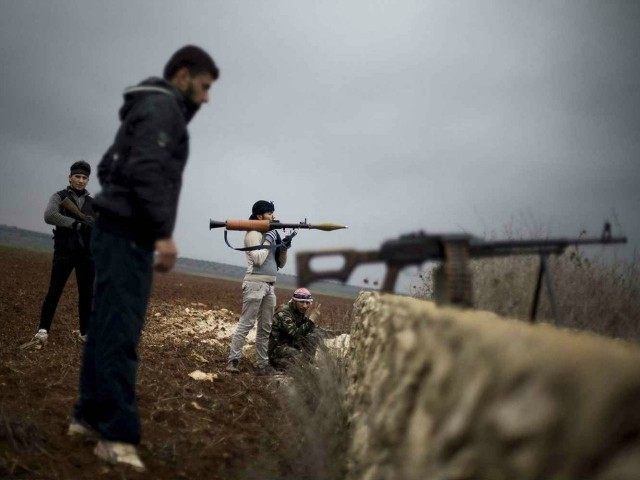The Free Syrian Army has been backed by Western powers until now and has been actively targeted by Russian airstrikes, but it has reportedly made overtures to Moscow to discuss military cooperation, or at least an end to Russian bombing of their positions.
According to reports from both Russian media and Reuters, Russian Deputy Foreign Minister Mikhail Bodganov claims that delegations from the Free Syrian Army have visited Moscow several times, as recently as last week. Representatives from several factions within the FSA have denied these reports.
“On Sunday, members of the Free Syrian Army sent a proposal to Russia on holding talks in Cairo on cooperation in the Syrian conflict settlement,” claims a report at Sputnik News.
“The Russian Foreign Ministry has repeatedly stated that it was ready to cooperate with the FSA and asked the United States and the United Kingdom for assistance in establishing contacts with the group to better coordinate efforts in the fight against Islamic State in Syria,” Sputnik adds.
The tenor of Russian relations with the FSA is slightly different at Reuters, which relates the same claim from Bodganov that Syrian rebels have visited Moscow, plus Foreign Minister Sergei Lavrov’s assurance that the Russians are ready to assist the FSA “if they knew where they were.”
Given the number of Russian bombs that have fallen on their positions, the FSA may not be terribly eager to let the Russian military know where they are, but they did express willingness to negotiate with Moscow and possibly pursue future cooperation after the airstrikes stop.
“We didn’t turn down the offer. We just said if the Russians are serious in their offer they should stop immediately targeting our bases and targeting the civil areas,” Reuters quotes Major Issam al-Reis telling the BBC about Russia’s offer of assistance. “We don’t need the help now, they should stop attacking our bases and then we can talk about future co-operation.”
As Reuters observes, the FSA’s fortunes have waned during its time as the Western world’s nominal ally on the ground in Syria, with the moderate rebels “eclipsed” by ISIS and al-Qaeda’s Nusra Front. As Major Reis complained to the BBC, the FSA finds itself battling multiple enemies without enough weapons and with little confidence in the West’s willingness to arm them more heavily.
That reluctance stems, in part, from fears that advanced Western munitions would end up in the hands of terrorists. It is also difficult to see how the outnumbered, outgunned FSA can prevail against the ISIS terror state, other sinister elements of the Syrian rebellion, and the Assad regime, now reinforced with Russian air power and Iranian ground forces. Obviously the Russian offer of “assistance” to the FSA would not involve assisting them with overthrowing Assad, but they might find a place in the Russo-Iranian-Syrian battle against al-Qaeda and ISIS.
If the FSA is sending emissaries to Moscow for serious negotiations, they might be looking for one of those “exit strategies” Western media are always talking about and counting on Moscow to do what the Obama administration has not been able to do—work with the Assad regime to find a place for Free Syrian Army supporters in post-war Syria.
The Free Syrian Army is an umbrella organization consisting of several different factions. On Tuesday evening, representatives from four of those factions told Reuters that Russian media reports about FSA emissaries visiting Moscow were false.
“Nothing of this sort happened on our part as FSA,” insisted a spokesman for Alwiyat Seif al-Sham, which operates in southern Syria. “It is impossible for us to accept going to Moscow, and to have dialogue with it. We don’t want their help.” He said his group checked with its allies, and they all denied sending people to Moscow.
“The Syrian Coalition considers these claims a part of the Russian misleading propaganda that aims at diverting attention from failures of the Russian aggression on the Syrian people,” said the main FSA group backed by the West, the National Coalition of Syrian Revolution and Opposition Forces, in a statement posted on its website.

COMMENTS
Please let us know if you're having issues with commenting.